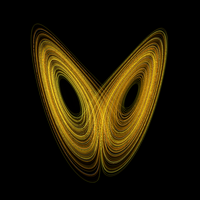In the philosophical sense, the major implication of epiphenomenalism is that what we do or feel is never caused by what we experience or have experienced. This implication goes much further than the negation of free will. As subjective beings, we are completely impotent confronted by the processes of the material world. We cannot exert any influence upon them, but we are completely determined by them. Our relations with reality, our relation with ourselves, with other persons, with objects, etc., are completely caused by physiological processes in the brain.
Such relations never initiate anything. Thus, epiphenomenalism anthropologically implies an "imprisoned" consciousness that can undertake absolutely nothing and never has any power over itself. Naturally, this metaphysics has great consequences for the axiology and ethics. In fact, axiologically epiphenomenalism implies that all our values are biogenical; there are no values that would not be epiphenomena of neurological processes.
Rivas, Titus & van Dongen, Hein Exit Epiphenomenalism: The Demolition of a Refuge published in the Journal of Non-Locality and Remote Mental Interactions, vol. 57, 2001
Epiphenomenalism is the view in philosophy of mind according to which physical events have mental effects, but mental events have no effects of any kind. This is a radical idea because it denies the concept that the mind has any control over the body, or even any ability to cause an action in the world. Human experience is present, but inert.
Wikipedia: Epiphenomenalism
... even what it could not see?
Subscribe to:
Post Comments (Atom)

No comments:
Post a Comment